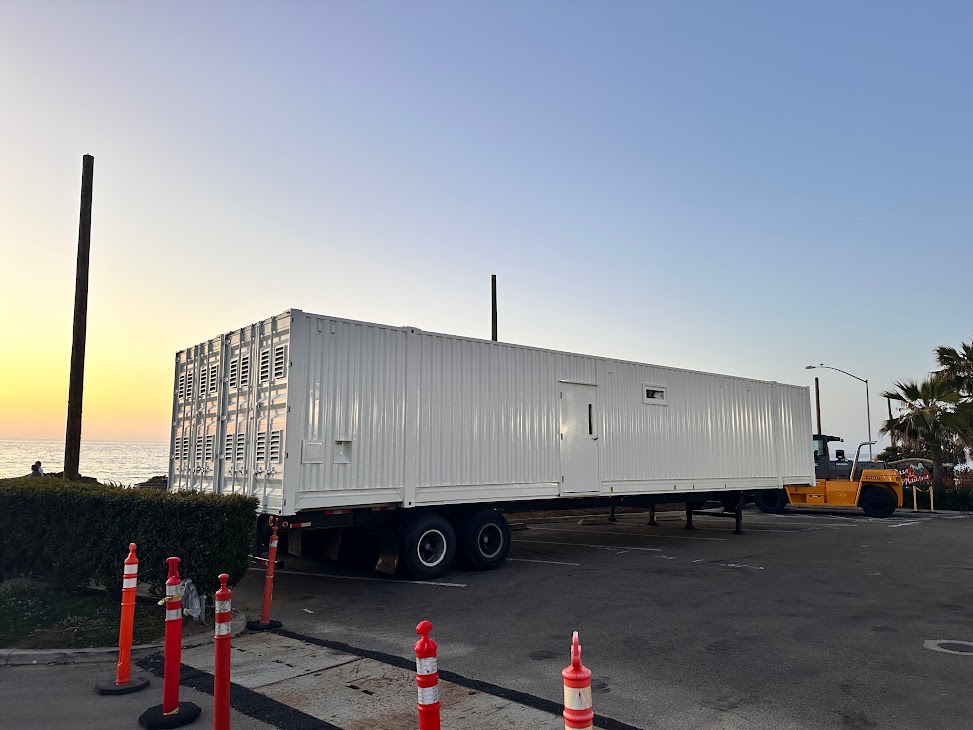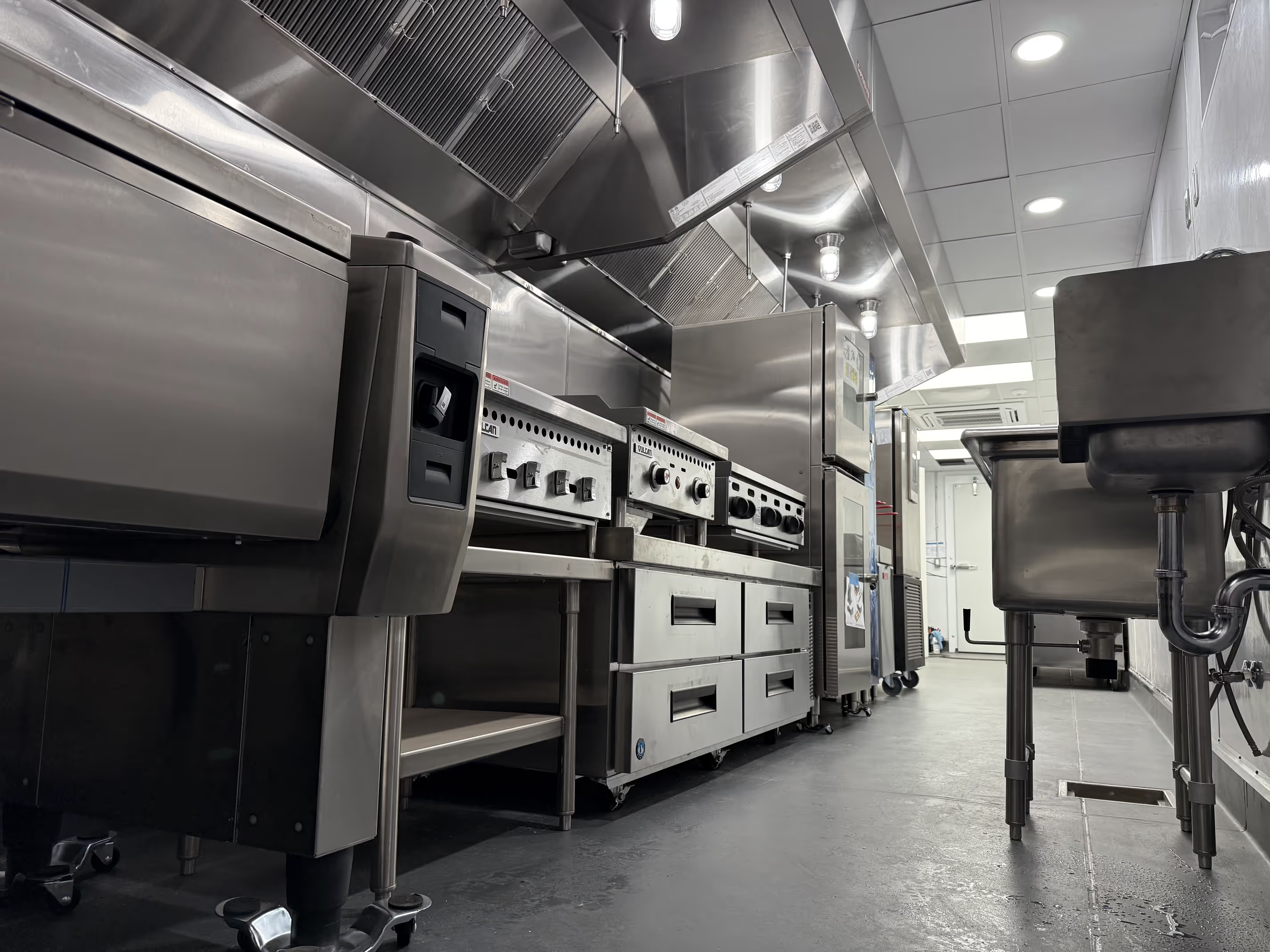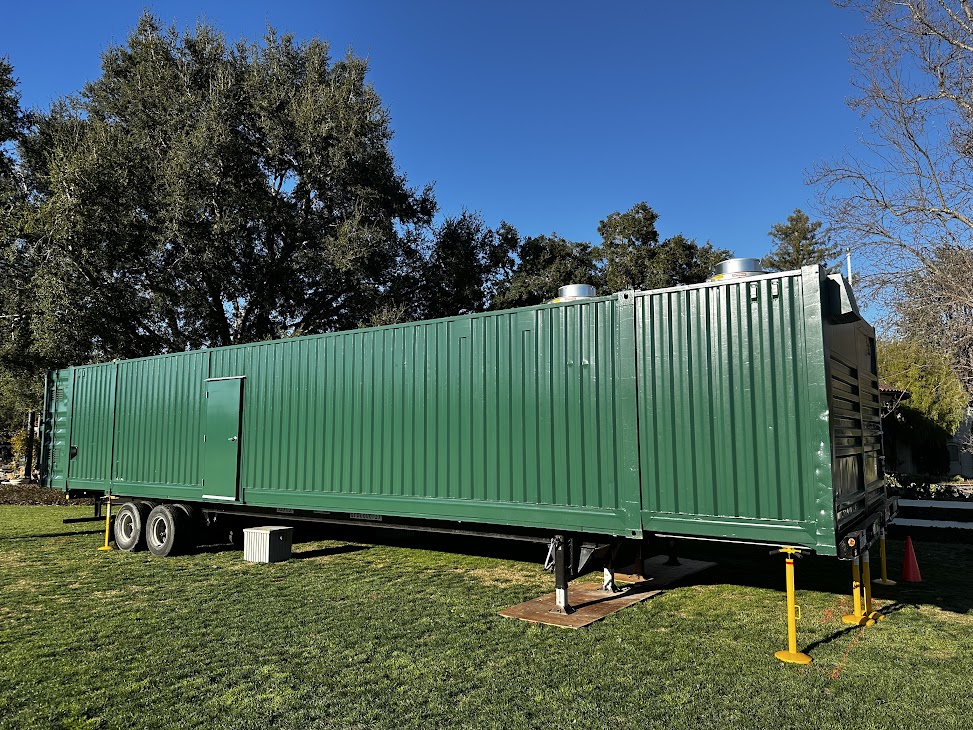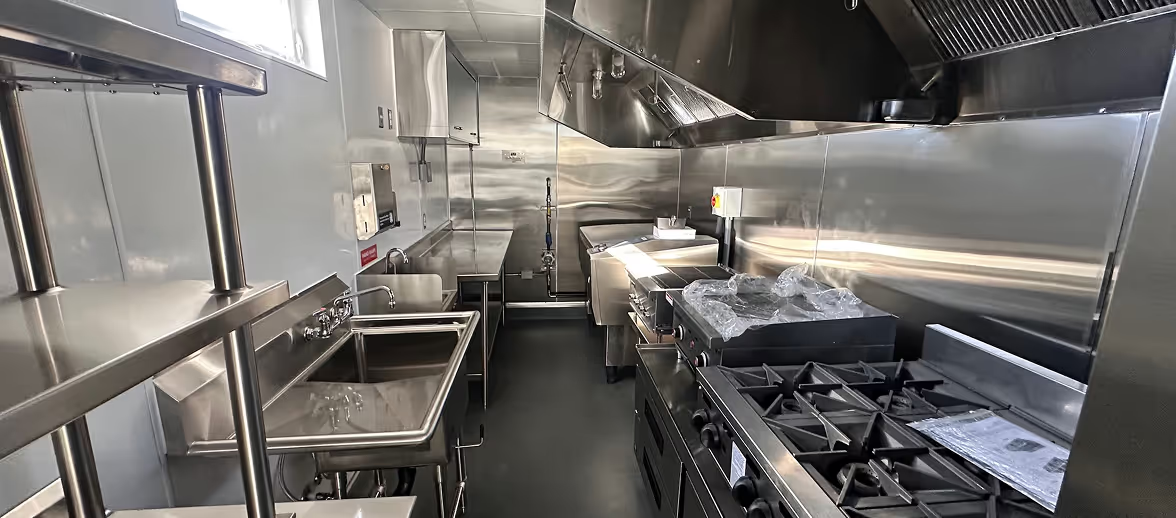%2520(1).jpeg)
Introduction
Renting a mobile kitchen can transform the way your business responds to renovations, large-scale events, or emergency situations. Imagine quickly deploying a fully certified, commercial-grade kitchen without the delays, costs, or complexities of traditional construction. With the global mobile kitchen rental market projected to grow at a CAGR of 6.5% over the next five years, it's clear that more and more organizations are discovering the significant advantages these flexible solutions offer.
Whether you're organizing a bustling festival, updating a hotel's kitchen, or managing an urgent crisis, renting a mobile kitchen trailer ensures uninterrupted operations. But how do you know which solution is right for your specific needs, and where do you even start?
This comprehensive guide demystifies the entire mobile kitchen rental process, breaking it down into clear, manageable steps. From assessing your requirements and selecting the right equipment to smoothly operating and returning your kitchen, you'll gain the confidence and knowledge needed to make informed decisions every step of the way.
Understanding Mobile Kitchen Rentals
What Are Mobile Kitchens?
Mobile kitchen trailers are essentially fully-equipped and portable commercial kitchens designed to meet diverse culinary needs, ranging from event catering and disaster relief to temporary food service during renovations. Each trailer typically includes professional-grade kitchen appliances, plumbing, advanced HVAC systems compliant with OSHA ventilation standards, and essential add-ons like grease traps and wastewater tanks.
Key Benefits of Mobile Kitchen Trailers:
Mobile kitchen trailers offer hospitality businesses distinct advantages, addressing common challenges like limited kitchen space, renovation disruptions, or seasonal fluctuations. Key benefits include:
- Flexibility & Mobility: Deployable almost anywhere, from busy festivals to remote emergency sites, enabling operations to remain agile and responsive.
- Cost Efficiency: Significantly cheaper than constructing traditional kitchens, making them ideal for temporary needs or seasonal operations.
- Rapid Deployment: Unlike brick-and-mortar facilities that take months to build, mobile kitchens can be operational within days or weeks.
- Reduced Business Risk: Allows hospitality businesses to test new culinary concepts and locations without heavy capital investment.

Step-by-Step Mobile Kitchen Rental Process
Step 1: Assess Your Needs
Before jumping into the rental process, carefully assess your specific requirements. Are you renovating your restaurant and need a temporary kitchen for several months? Catering an event requiring a fully equipped cooking station? Or responding to an emergency that demands rapid setup?
Evaluate these critical factors:
- Duration: How long will you require the kitchen? Several weeks, months, or longer?
- Location: Will the kitchen be placed directly outside your facility or at an off-site location?
- Menu Complexity: Identify the types of meals you'll prepare and the specific equipment needed.
- Staffing Needs: Determine how many chefs and support staff will simultaneously utilize the kitchen.
Note: Commercial kitchen renovations typically last between 3 to 12 months, making mobile kitchens essential for uninterrupted service.
Step 2: Choose a Reliable Mobile Kitchen Provider
When selecting a mobile kitchen provider, ensure you choose a dependable company such as Mobile Culinaire. They provide turnkey solutions, including delivery, setup, and pickup services. Their kitchens are fully compliant, meeting all local regulations, and come with flexible lease terms tailored specifically to your operational timeline.
We offer a range of models to fit different operations:
- 32' Mobile Kitchen: Compact, ideal for 150-200 meals.
- 40' Mobile Kitchen: Mid-sized, supporting 200-250 meals.
- 53' Mobile Kitchen: Spacious, suitable for 300-450 meals.
- 2x53' Mobile Kitchen: High-capacity unit, accommodating 500-650 meals.
Note: Experts can also guide you through compliance requirements, as 70% of mobile food businesses cite local regulations as a top challenge.

Step 3: Get a Quote
Understanding costs is key to budgeting for a mobile kitchen rental. Transparent pricing with no hidden fees ensures you can plan ahead without unexpected expenses.
Mobile kitchen rental prices vary based on several factors, including:
- Kitchen size and equipment
- Rental duration (short-term vs. long-term)
- Delivery distance
- Additional services (e.g., refrigeration, storage, waste disposal)
Note: A temporary kitchen rental can range from $5,000 to $80,000 per month, depending on complexity and duration. To learn more about mobile kitchen rental costs, read our article here.
Step 4: Obtain Necessary Permits
Compliance with local health and zoning regulations is essential. Before setting up your mobile kitchen, you’ll need to obtain the appropriate permits and approvals.
Depending on your location, this may include:
- Health Permits: Approval from the local health department to ensure food safety compliance.
- Fire Safety Permits: Verification that the kitchen setup meets fire code regulations.
- Zoning Approvals: Confirmation that your location is legally allowed to operate a temporary kitchen.
To learn more about the permits and licenses you need for a mobile kitchen rental, read our article here.
Note: In many locations, obtaining the necessary permits can take 4-6 weeks, so it's important to start early.

Step 5: Prepare Site & Logistics
Before delivery, the rental site must be prepared to accommodate the mobile kitchen.
Consider the following:
- Utility Hookups: Ensure access to water, electricity, and gas.
- Space Requirements: Confirm enough room for truck access and kitchen placement.
- Traffic Flow: Plan for staff movement and customer access (if applicable).
Note: According to industry reports, 30% of mobile kitchen setup delays are due to site preparation issues.
Step 6: Schedule Delivery & Setup
Once finalized:
- Confirm delivery date and site readiness (level ground, access for trucks).
- Arrange utility hookups for water, electricity, and gas.
- Conduct a pre-opening inspection with the provider to verify functionality.
Note: Reputable providers, like Mobile Culinaire, handle transportation, setup, and initial testing to ensure your kitchen is operational quickly.
%2520(1).jpeg)
Step 7: Operate & Maintain Your Mobile Kitchen
During operations:
- Maintain daily cleaning and sanitation to remain health-code compliant
- Check equipment regularly to prevent downtime
- Follow safe storage and temperature protocols
Note: A well-maintained unit ensures efficiency, as studies show that foodservice downtime can result in losses of up to $10,000 per day for restaurants.
Step 8: Decommissioning & Return
When your project concludes:
- Schedule decommissioning with the rental provider
- Clean and inspect the unit before pickup to avoid extra fees
- Consider future rentals if your needs are seasonal or recurring
Efficient offboarding ensures a smooth closure without hidden costs.

Mobile Culinaire’s Approach to Mobile Kitchen Rentals
Mobile Culinaire offers strategic, full-service foodservice continuity solutions tailored specifically for hotels, resorts, and hospitality groups. With over 400 deployments nationwide and every unit manufactured in-house, Mobile Culinaire is a trusted partner for operations that cannot afford interruptions.
Industry-Leading Expertise
Mobile Culinaire specializes exclusively in mobile kitchen trailers, bringing unmatched expertise in handling the complex needs of hospitality operators, including compliance issues, spatial constraints, and high-volume guest services. Whether responding to emergencies, renovations, or utility failures, our experienced team delivers customized solutions promptly and efficiently.
Commercial-Grade Quality
Each Mobile Culinaire unit is meticulously designed for durability, safety, and continuous high-volume performance. Built specifically to meet NSF, ADA, and NFPA 96 standards, our kitchens seamlessly support complex hotel and resort menus and maintain operational excellence under demanding conditions.
Rapid Setup with Minimal Disruption
Understanding the urgency during kitchen downtime, Mobile Culinaire ensures units are delivered and operational within 24–72 hours, offering even faster solutions for emergencies. Our comprehensive service includes permit coordination, utility hookups, and complete installation, allowing your team to stay focused on guest satisfaction.
Comprehensive Support Units
Beyond mobile kitchens, Mobile Culinaire provides essential support trailers, including refrigeration and freezer units, mobile dishwashing stations, prep kitchens, and laundry and sanitation facilities. This modular system maintains full operational capacity throughout facility outages.
Seamless Rental Experience
From initial contact through final setup, Mobile Culinaire ensures a frictionless rental experience designed exclusively for hospitality operators. Personalized site assessments, turnkey installation, ongoing technical support, and meticulous attention to detail ensure uninterrupted service for your guests.

Conclusion & Next Steps
Renting a mobile kitchen is a process that ensures your operations never pause, even during renovations, events, or emergencies. By following this step-by-step guide, you can confidently navigate the rental process and enhance your hospitality operations.
If you’re ready to simplify your operations with a turnkey mobile kitchen rental, explore Mobile Culinaire or contact us today!
People Also Ask (FAQ)
What does the mobile kitchen rental process involve?
The rental process typically includes assessing your kitchen requirements, choosing a reliable provider, obtaining a customized quote, securing necessary permits, preparing your site, arranging delivery and setup, operating the kitchen, and coordinating pickup once the rental period concludes. Providers like Mobile Culinaire streamline this process to ensure minimal disruption and smooth operations.
How much does it cost to rent a mobile kitchen trailer?
Rental costs typically range from $5,000 to $80,000+ per month, varying based on kitchen size, equipment, and lease duration.
Do I need permits or licenses to operate a mobile kitchen rental?
Yes. You'll typically require health, fire safety, and zoning permits. Securing these approvals early is crucial to prevent operational delays.
How quickly can a mobile kitchen be delivered and set up?
Standard mobile kitchen units can usually be deployed within 24–72 hours, depending on permitting, site readiness, and setup complexity.
Testimonial

"What is standing out when you look at the mobile kitchen operation is the efficiency that we can really achieve because it's built for that."
Tell us about your kitchen needs and request a quote.
.png)
Turnkey mobile kitchen
.png)
Proudly made in-house in the USA
.png)
Commercial grade kitchen equipment
.png)
Code-compliant
Trusted by Industry Leaders




.gif)

%20(1).avif)
%20(1).avif)
%20(1).avif)